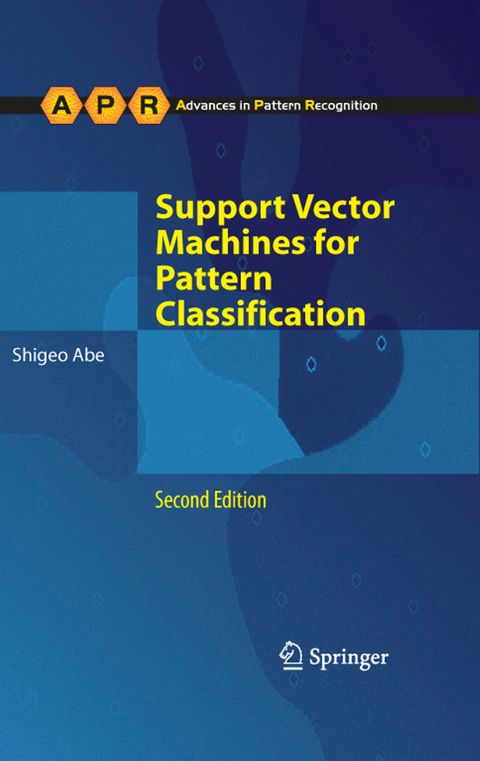
Support Vector Machines for Pattern Classification
Seiten
2012
|
Softcover reprint of hardcover 2nd ed. 2010
Springer London Ltd (Verlag)
978-1-4471-2548-8 (ISBN)
Springer London Ltd (Verlag)
978-1-4471-2548-8 (ISBN)
A guide on the use of SVMs in pattern classification, including a rigorous performance comparison of classifiers and regressors. Covers sparse SVMs, learning using privileged information, semi-supervised learning, multiple classifier systems, and multiple kernel learning;
A guide on the use of SVMs in pattern classification, including a rigorous performance comparison of classifiers and regressors. The book presents architectures for multiclass classification and function approximation problems, as well as evaluation criteria for classifiers and regressors. Features: Clarifies the characteristics of two-class SVMs; Discusses kernel methods for improving the generalization ability of neural networks and fuzzy systems; Contains ample illustrations and examples; Includes performance evaluation using publicly available data sets; Examines Mahalanobis kernels, empirical feature space, and the effect of model selection by cross-validation; Covers sparse SVMs, learning using privileged information, semi-supervised learning, multiple classifier systems, and multiple kernel learning; Explores incremental training based batch training and active-set training methods, and decomposition techniques for linear programming SVMs; Discusses variable selection for support vector regressors.
A guide on the use of SVMs in pattern classification, including a rigorous performance comparison of classifiers and regressors. The book presents architectures for multiclass classification and function approximation problems, as well as evaluation criteria for classifiers and regressors. Features: Clarifies the characteristics of two-class SVMs; Discusses kernel methods for improving the generalization ability of neural networks and fuzzy systems; Contains ample illustrations and examples; Includes performance evaluation using publicly available data sets; Examines Mahalanobis kernels, empirical feature space, and the effect of model selection by cross-validation; Covers sparse SVMs, learning using privileged information, semi-supervised learning, multiple classifier systems, and multiple kernel learning; Explores incremental training based batch training and active-set training methods, and decomposition techniques for linear programming SVMs; Discusses variable selection for support vector regressors.
Two-Class Support Vector Machines.- Multiclass Support Vector Machines.- Variants of Support Vector Machines.- Training Methods.- Kernel-Based Methods Kernel@Kernel-based method .- Feature Selection and Extraction.- Clustering.- Maximum-Margin Multilayer Neural Networks.- Maximum-Margin Fuzzy Classifiers.- Function Approximation.
| Erscheint lt. Verlag | 4.5.2012 |
|---|---|
| Reihe/Serie | Advances in Pattern Recognition |
| Zusatzinfo | 114 Illustrations, black and white; XX, 473 p. 114 illus. |
| Verlagsort | England |
| Sprache | englisch |
| Maße | 155 x 235 mm |
| Themenwelt | Informatik ► Grafik / Design ► Desktop Publishing / Typographie |
| Informatik ► Theorie / Studium ► Künstliche Intelligenz / Robotik | |
| Technik ► Elektrotechnik / Energietechnik | |
| Schlagworte | Fuzzy Systems • Kernel Methods • Neural networks • Pattern classification • Support Vector Machines |
| ISBN-10 | 1-4471-2548-7 / 1447125487 |
| ISBN-13 | 978-1-4471-2548-8 / 9781447125488 |
| Zustand | Neuware |
| Haben Sie eine Frage zum Produkt? |
Mehr entdecken
aus dem Bereich
aus dem Bereich


